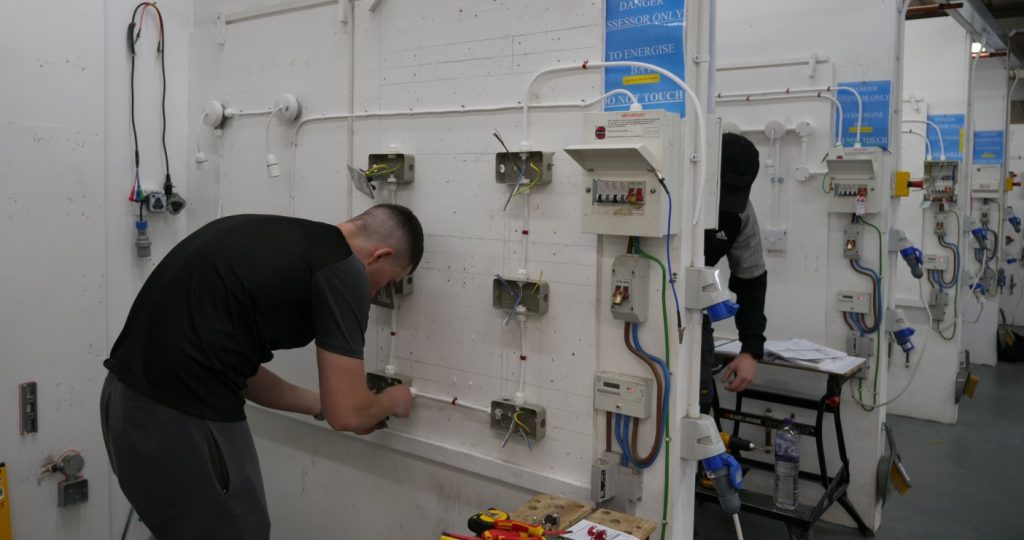
Electricians are highly-skilled tradespeople who hold a vital role in modern construction, meaning their expertise is often in high demand.
This demand combined with an above-average annual salary makes the career path an appealing one, but how long does it roughly take to go from a complete beginner to a fully qualified electrician?
How long does it take to become a trained electrician?
The time spent training will depend on the level of qualification you want to achieve.
A Level 2 Electrical course will take around seven weeks to complete and is designed to equip beginners with the initial regulation knowledge, practical skills and technical understanding needed to move on to a Level 3 qualification.
Once completed, a Level 3 course provides the advanced understanding and certification needed for an electrician to begin working in the field. Level 3 training will take around six weeks.
You may also want to consider completing your NVQ Level 3 assessment to stand out to employers. This is an assessment rather than a course, meaning the time needed to complete will vary depending on the person. Generally, the AM2 aspect of this assessment can be completed in three days.
What if I already have prior experience?
For those who already have experience in the industry, an Experienced Worker Assessment could reduce the amount of time you need to spend training. Anyone pursuing this route will complete a pre-assessment before attending a profiling session to determine their level of knowledge and competence.
Do commercial and domestic electricians need different qualifications?
Domestic electricians must complete a domestic installer course that covers topics such as Part-P regulations, wiring regulations, testing, electrical inspection and installation.
Commercial electricians must complete an electro-technical qualification1 with a Level 3 NVQ Diploma in Electro-Technical Systems and Equipment.
The JIB Gold Card, also known as the ECS Gold Card, is the highest identification on offer in the industry and is an indication that a person has completed a formal industry-regulated competency-based qualification which combines technical theory with practical assessments to an NVQ Level 3 standard. Electricians who want to carry out work unsupervised will need to hold a Gold Card.
What registrations do I need before working?
While it’s not a legal requirement, it’s common for electricians to register with the National Inspection Council for Electrical Installation Contracting (NICEIC)2. NICEIC-accredited contractors must meet extremely high requirements set by the regulatory body, and this is something customers often look for before hiring an electrician as an indication of skill level.
For electricians who want to work on a construction site, you’ll need to hold a CSCS Card3. To register for this you’ll need to pass a health, safety and environment test (HS&E).
Interested in starting a career as an electrician? Our team would be happy to help you find the right course. Drop by the training centre anytime we’re open for a chat, or If you can’t make it in, call us on 01322 280 202.
- Differences between domestic and commercial electricians: https://uk.indeed.com/career-advice/finding-a-job/domestic-vs-commercial-electrician#:~:text=However%2C%20a%20commercial%20electrician%20needs,Electro%2DTechnical%20Systems%20and%20equipment.
- Apply for a CSCS Card: https://www.cscs.uk.com/frequently-asked-questions/what-do-i-need-to-apply-for-my-cscs-card/
- More about the NICEIC: https://www.niceic.com/